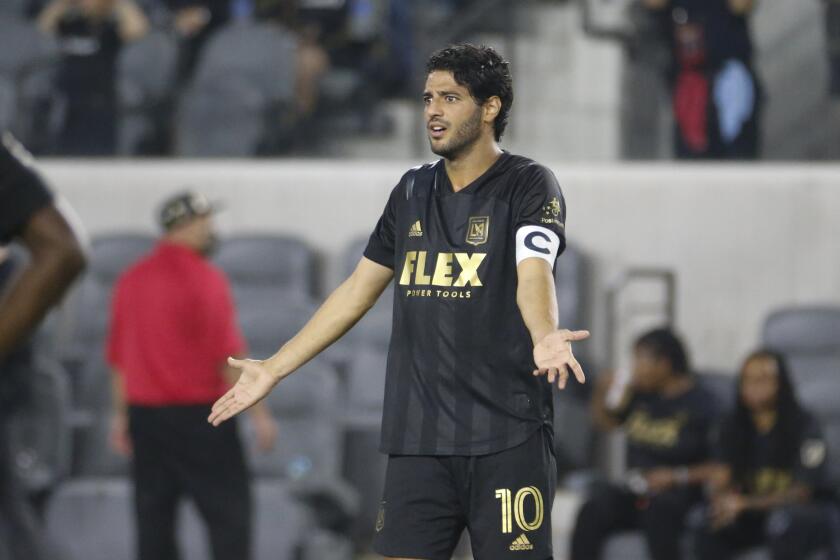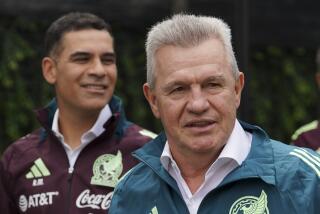No homophobic chant as more than 53,000 fans watch Mexico dominate at Coliseum
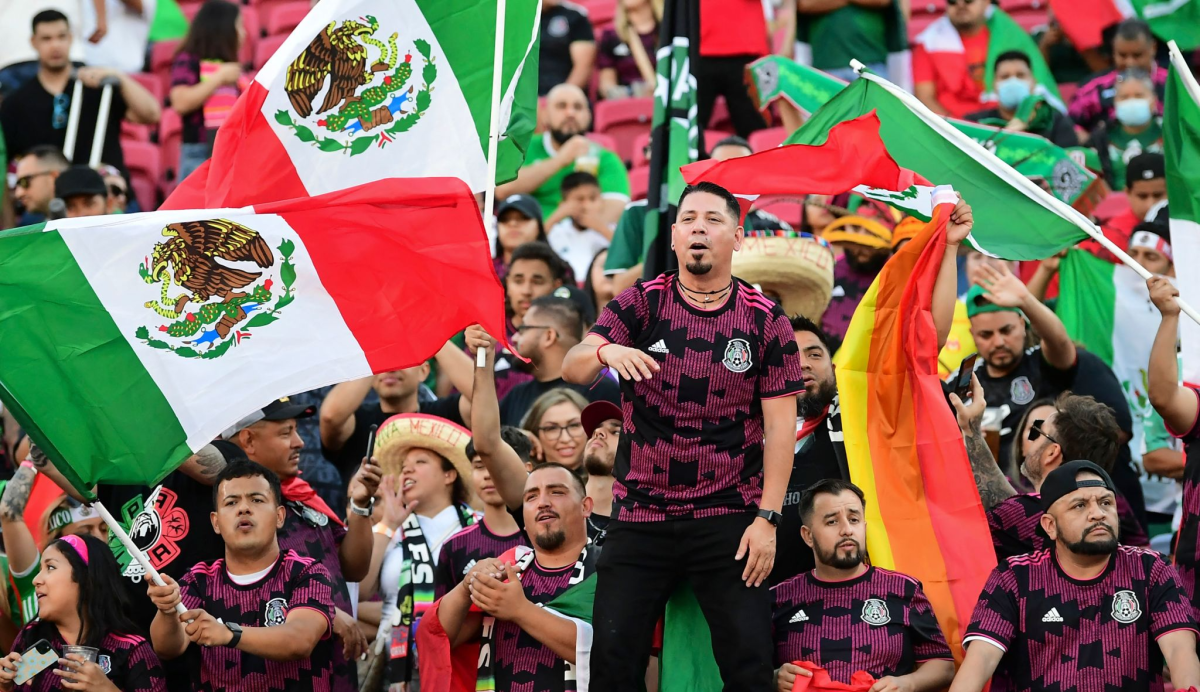
- Share via
Nigerian goalkeeper Stanley Nwabili touched the ball for the first time in the seventh minute of Saturday’s friendly with Mexico at the Coliseum.
Watching from the sidelines, Gerardo Torrado, sporting director for Mexico’s national team program, listened nervously for what would come next from the crowd of 53,258.
Much to his relief what he heard was the sound of silence, not the anti-gay chant that has, for years, marked the goal kicks of Mexico’s opponents.
Minutes earlier he had heard the sound of cheers, with Mexico getting goals from Hector Herrera and Rogelio Funes Mori in the first four minutes of a comfortable 4-0 win over a young, inexperienced and overmatched Nigeria in Mexico’s final preparation for Saturday’s CONCACAF Gold Cup opener.
Minnesota United scored in the fifth minute of stoppage time at Banc of California Stadium, stealing a home win from LAFC
Herrera and Galaxy captain Jonathan dos Santos added goals in the second half and Galaxy midfielder Efraín Álvarez, who grew up just seven miles from the Coliseum, made his second appearance for Mexico, playing the final 24 minutes off the bench in a game Mexico dominated.
El Tri controlled the ball for nearly two-thirds of the game, outshot Nigeria 16-3 and put 11 shots on goal while Mexican keeper Alfredo Talavera, the likely Gold Cup starter, didn’t need to make a save to pick up the shutout, his second in three games this year.
Taken together, it was a good night for a Mexican federation that really needed one.
Last month Mexico lost the first CONCACAF Nations League final to the U.S. in a game that ended embarrassingly for El Tri, with the officials pausing the game because of the chant and fans throwing debris on the field, injuring U.S. attacker Gio Reyna. Less than two weeks later FIFA, in an effort to stop the offensive chant, ordered Mexico to play its first two home World Cup qualifiers this fall in empty stadiums.
The federation quickly lined up behind the sanctions.
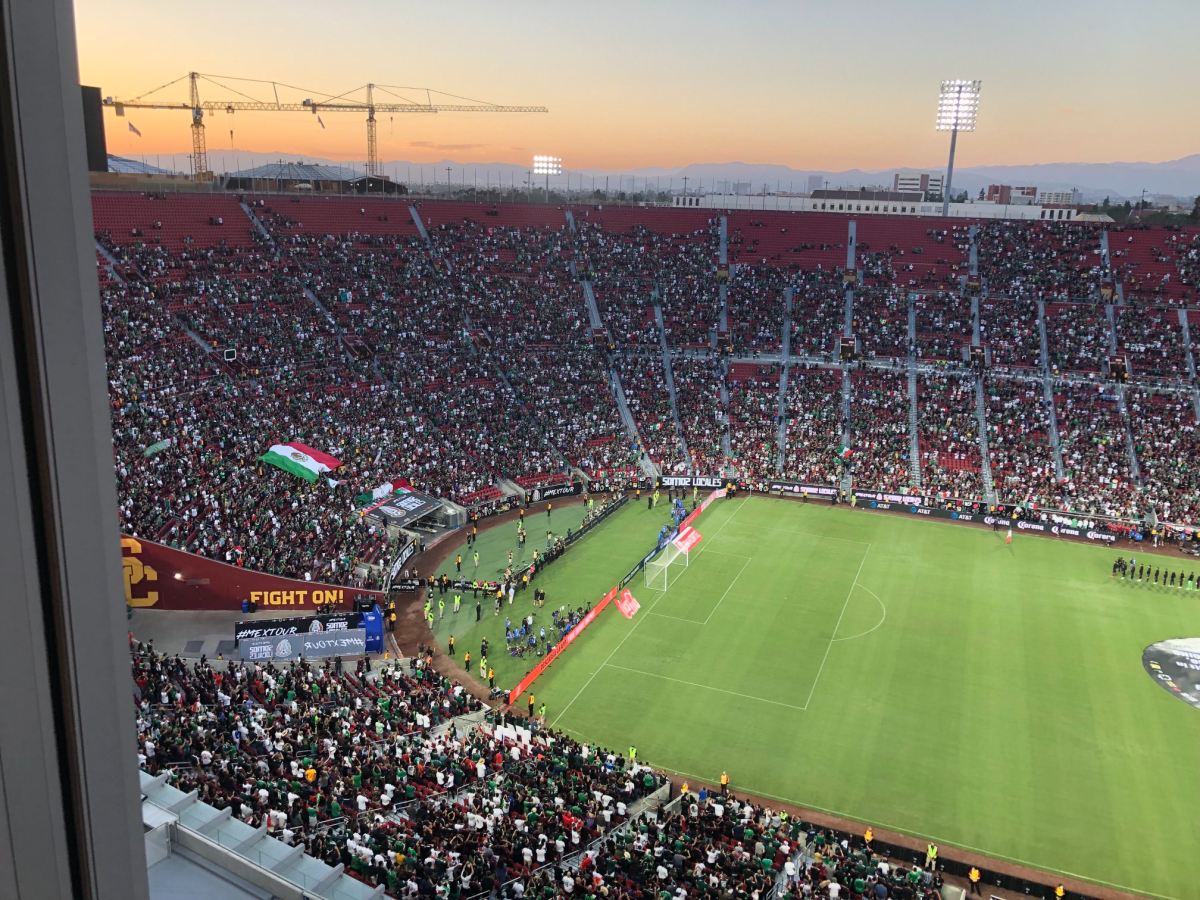
“The federation strongly rejects the homophobic chant,” Torrado, speaking in Spanish, said before Saturday’s game. “I would like to ask the fans if they believe this chant, this homophobic chant, wins us anything. I would like to show them that we lose a lot.”
And they could lose a lot more.
Last month’s sanctions came in reaction to the repeated use of the chant during the Olympic qualifying tournament in Guadalajara last March and in announcing the penalties, the Mexican federation said FIFA’s investigation into the national team’s first three games in the U.S. this year — including the Nations League final — had not been concluded. That means further action could be taken.
In the meantime, the fans appear to have gotten the message. The crowds for Mexico’s last three friendlies, including the one at the Coliseum, the largest to attend a sporting event in Southern California since the 2020 Rose Bowl, have been relatively well-behaved.
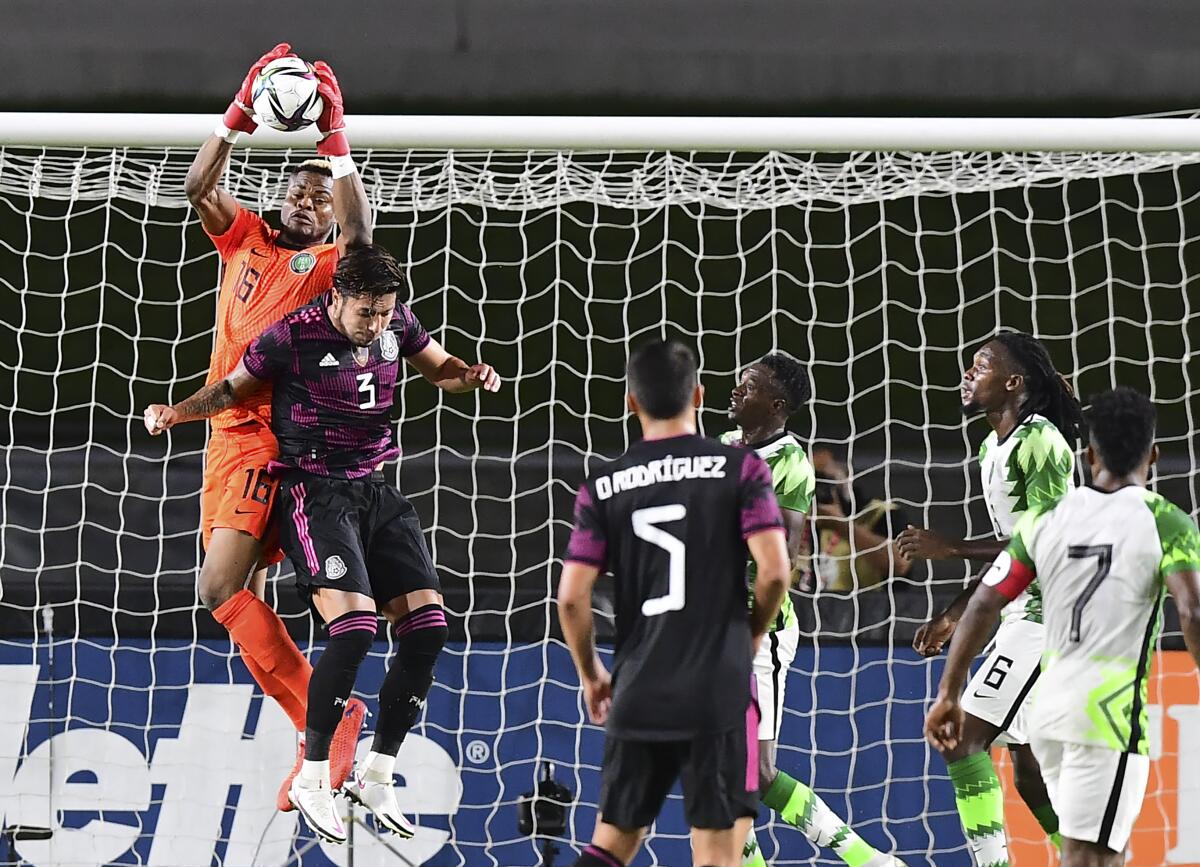
Before the game, the public address announcer repeatedly warned fans that the game would be abandoned if the chant was used and just before kickoff Herrera, the Mexican captain, made a vaguely worded, if clearly understood, plea in Spanish for the fans to behave themselves.
There is debate over whether the chant, believed to date to a Mexican club match in 2007 and used when the opposing keeper executes a goal kick, is derogatory since the offending word can have many meanings in Spanish, one of which is a slur used to demean gay men.
The Mexican federation has sought to end that conversation, with President Yon de Luisa saying if anyone takes offense to the language, then the chant is inappropriate. Pancho Villa’s Army, Mexico’s largest U.S.-based supporters’ group, went a step further, holding online discussions to educate fans about their in-stadium behavior and unfurling rainbow flags at Mexican games, not just as a sign of support for the LGBTQ community but also to show its opposition to the chant.

“In the end I think everybody understood that the chant’s got to go,” said Sergio Tristan, the Austin, Texas, attorney and Army vet who helped found the group. “We’re just here to support Mexico. I want my brothers and sisters from the LGBTQ community to feel comfortable at the game. If it’s their position that this makes them uncomfortable, then it is my position that I will do what I can to make their participation at the game as a fan as welcoming as possible.”
Torrado, whose 146 international appearances for Mexico are tied for fourth all time, echoed that.
“I invite the people who want to go to the stadium, who want to support us positively, who create that vibe that we always feel in the United States,” he said. “But those who are not willing to support us in that way, don’t come because you don’t help us.
“This chant may be very harmful to us and could have great repercussions.”

